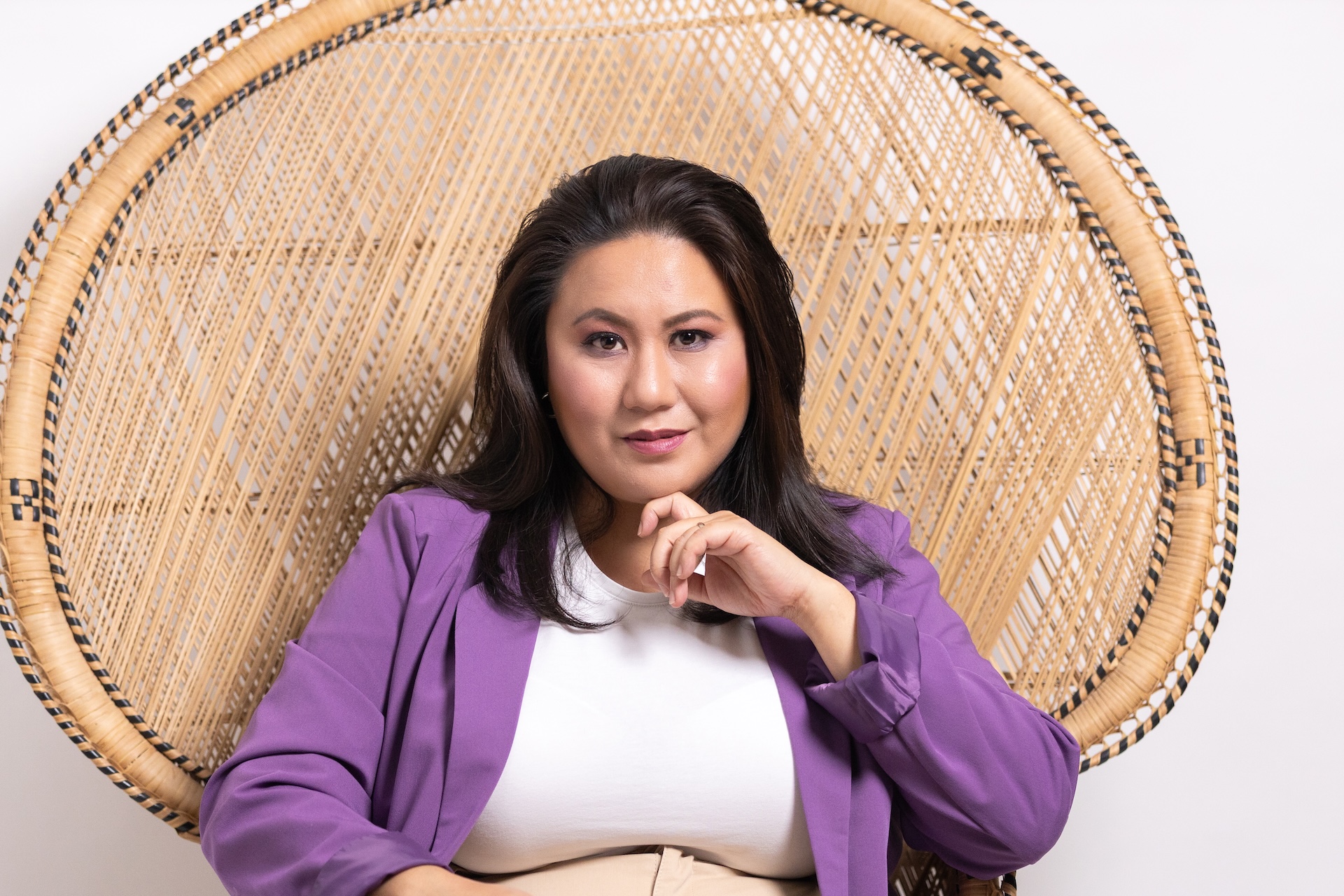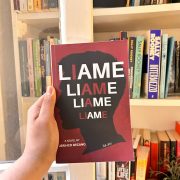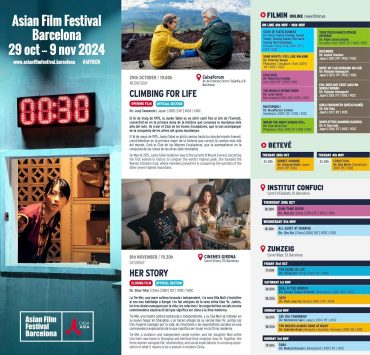Europe’s Ube Queen Rhea Topacio, founder of Filipino brands Luneta ice cream, Ubeness, Terifico, Guapito beer and Manong Sorbetero, celebrates a decade of pioneering unique products that strengthen Filipino food recognition on the continent. In this exclusive tell-all interview, she shares the joys, struggles, and fulfillment of building a business that carries the Filipino pride.
Running a business often involves cold professionalism, focus on investment returns, periodic evaluations, and continuous strategizing. To run your life like a business could not sound more un-Filipino, a total antithesis of our culture of warmth, friendliness, and leaving things to faith.
But this might be Rhea Topacio’s secret to success. The founder of Pamana World, makers of pioneering European- made Filipino products, applies corporate strategy in managing her life and successful food ventures.
Taking a cue from her corporate training, Rhea is a serial evaluator. She regularly assesses her life – from how productive her day is to what she is getting in return from the time that she invests in something.
“I always have a goal, something I can look forward to. If you don’t have a goal, you will be walking in loops. How would you see progress? You have to direct your everyday hobbies and whatever you do, toward that goal. Eyes on the prize. I want to ROI on everything, including my personal relationships.” Rhea says matter-of- factly during our interview at Eyebrow Lab, owned by her good friend Edson Gonzales.
An ROI on relationships, she explains later, can be the minutest gesture from others she invested time in, like a listening ear when she needs to vent out, a reassuring hug from a friend, laughter even during phone meetings or an honest feedback about a product she is testing. Rhea, with her vast network in the Filipino community, knows how to invest in people and relationships.
“I always have a goal, something I can look forward to. If you don’t have a goal, you will be walking in loops. How would you see progress? You have to direct your everyday hobbies and whatever you do, toward that goal. Eyes on the prize.”
Ube Queen Rhea Topacio, owner of Pamana World
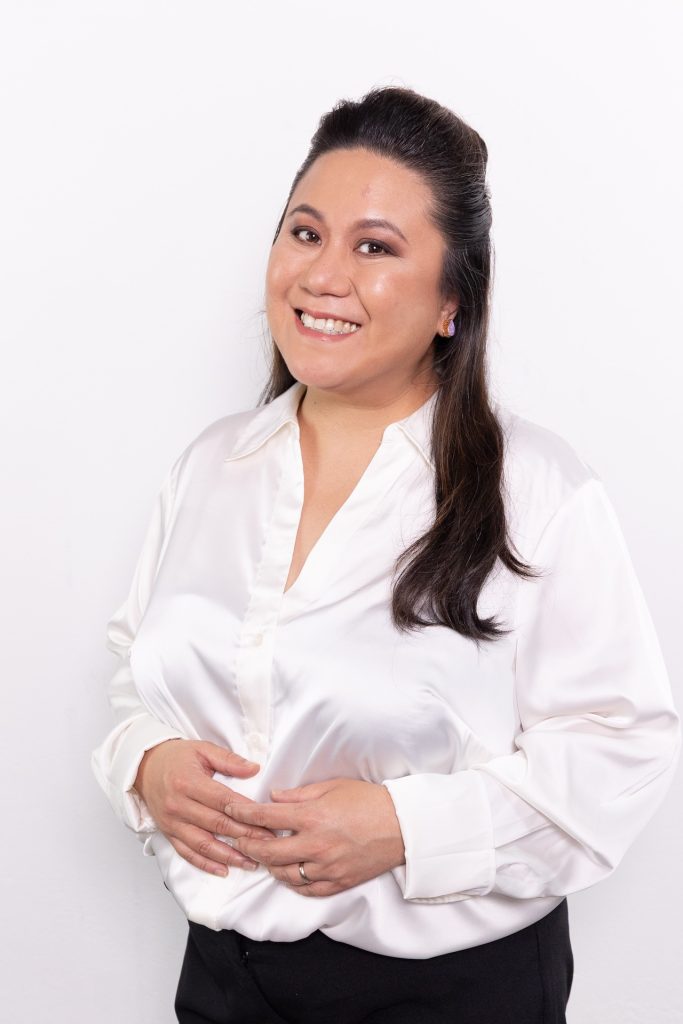
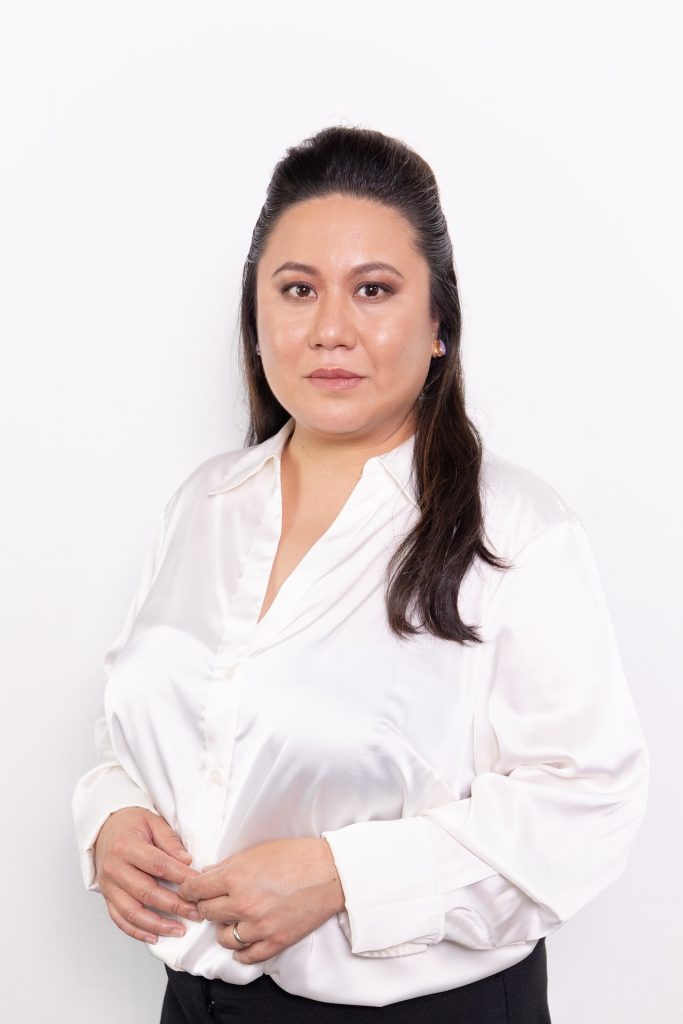

In 2010, 30-year old Rhea answered the call of love in the Netherlands, and started a family together with husband Dennis Rogacion. By leaving a senior management position in the Philippines, she also gave up her financial freedom.
Despite her skill sets and extensive work experience, she was jobless in the Netherlands, and financially-dependent on her husband. Much as she wanted to go back working when Rheaen started primary school, jobs were elusive. She needed to change perspectives and became a jack-of-all-trades, trying different business ideas like creating jewelry, providing marketing service to small businesses, moving balikbayan boxes, organizing events, creating artisanal cupcakes and chocolates, and eventually food development.
“I did not want to get bored, it is very unhealthy for me. I did not want to get paranoid or have negative thoughts. It would not be good for me or my family and friends. I wanted to be productive and not waste my time staring at the ceiling or wallowing in self-pity. Even if I only spent the day laughing with my daughter or playing Super Mario video games with my husband, that’s productive enough because I am able to rest my mind, away from work, and have fun.”
So you decided to give the European ethnic food market something to spend on?
“There are so many opportunities here (in Europe), especially in the Netherlands. You can set-up a business easily. The only question is, ‘how are you going to grow it, how are you going to sustain it?’.
I am a risk taker, and with my husband’s support, I can turn my ideas into business ventures. That’s one of the things we try to show with our products: take risks because you can be more than what you’re doing right now.”
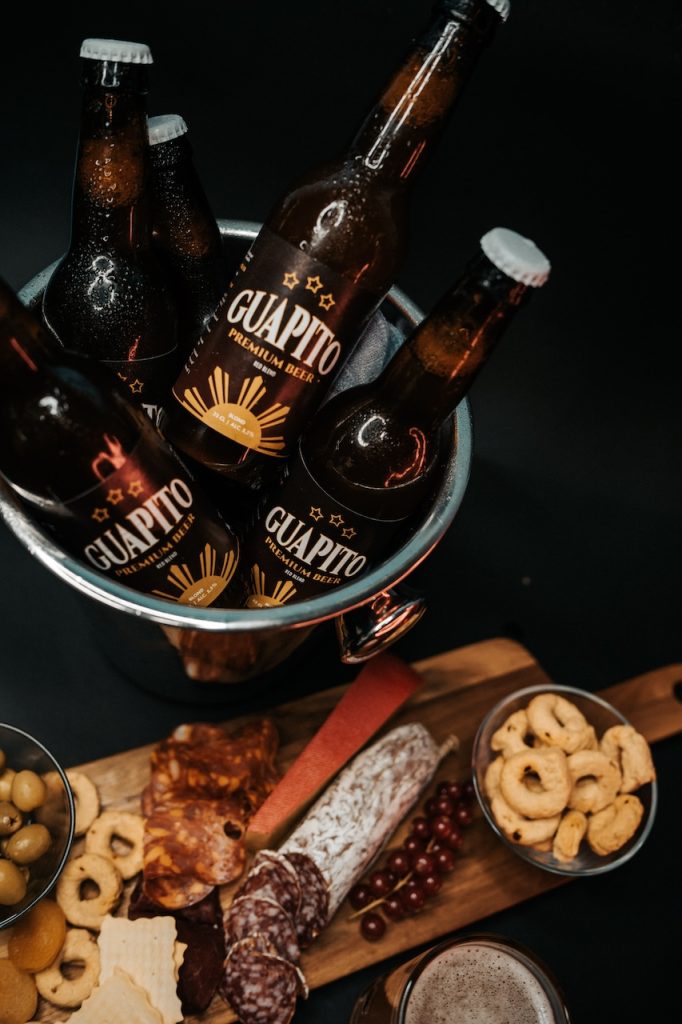


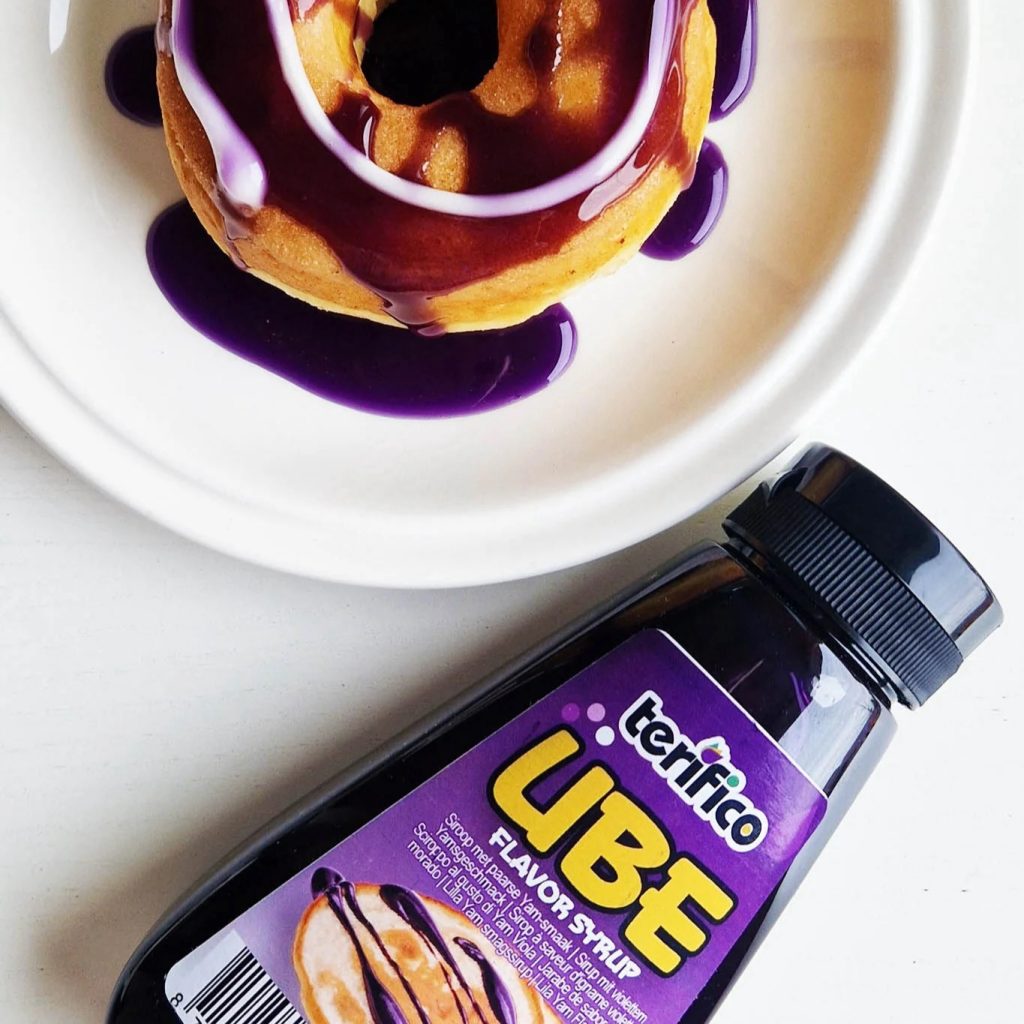
Before Luneta Ice Cream came into the Asian and Filipino ethnic market, most Filipino dairy products were not allowed to be sold in Europe. In 2015, Rhea and Dennis became the first food developers to produce and sell ice cream in Europe made from Dutch milk and infused with nostalgic Filipino flavors. Among these flavors are now the very popular ube (purple yam), mango, pandan, and macapuno
(sweetened coconut).
During the Covid-19 pandemic, when most businesses buckled under the lockdowns, they bravely launched Guapito, a premium beer rooted in Filipinos’ taste for light white beers created using Dutch brewing techniques, followed by Ubeness, a line of flavor- enhancers for home-baking, again carrying unique Filipino flavors. Once the lockdowns were lifted, they launched Manong Sorberto, their second brand of ice cream. Due to the increasing demand for Ubeness, they produced About Flavors to accommodate bigger clients like wholesale food makers, pastry shops, restaurants, bubble tea shops, and even bars. Their latest offering Terifico syrup is also aimed at a wider European clients.
In less than a decade, their business, now called Pamana World, has grown from one to eight different products, distributed across Europe, even as far away as Faroe Islands.
But it wasn’t a rosy path. At one crucial point in their business journey, Rhea was forced to choose between scaling up or remaining a small home business. A visit by the Dutch Food Authority was the turning point.
I am a risk taker, and with my husband’s support, I can turn my ideas into business ventures. That’s one of the things we try to show with our products: take risks because you can be more than what you’re doing right now.”
Ube Queen Rhea Topacio, owner of Pamana World
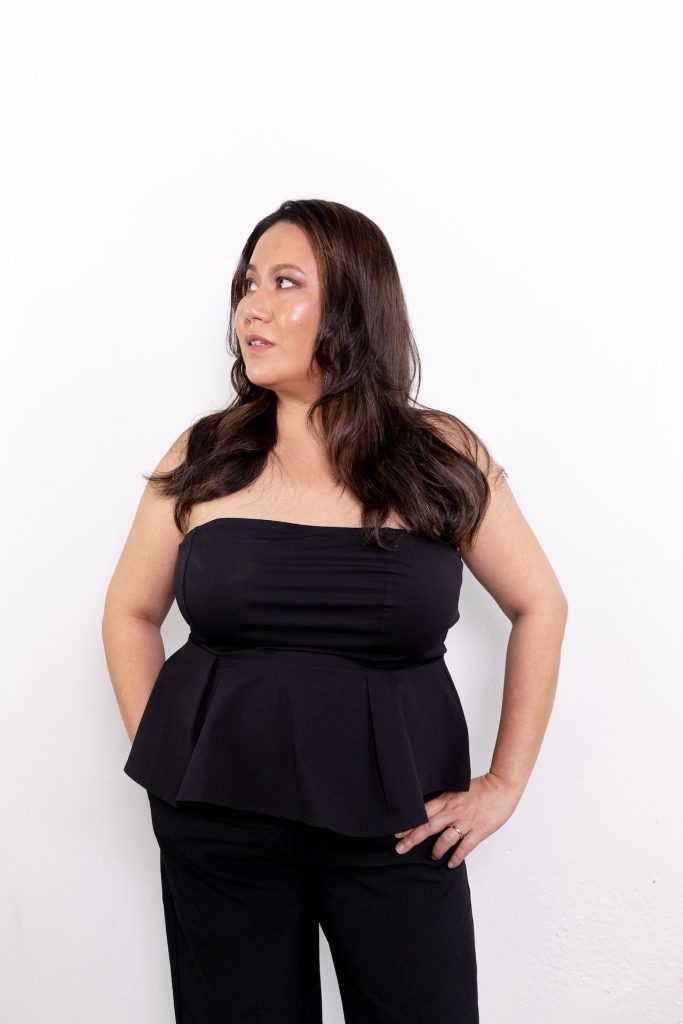
Did the Dutch Food Authority close down your business?
“Our operation was halted because we couldn’t continue manufacturing food at home. If you do that, you cannot sell to retailers. We had to overhaul our whole business, from checking, declarations, licenses, etc, and we had to provide all technical information. It was difficult because I did not know how to run a big business in a foreign country.”
How did you face that challenge?
“I went home and consulted my brother Rizzo, who is an investor in our company. He told me to just keep going, so we did. And I was happy that because of that inspection, we were able to professionalize our company and expand our business. We were able to sell to distributors and wholesalers with all the papers they required. It changed my view on how to do business, because it is not easy selling to retailers.”
What did you learn from this?
“You can’t run a business and just enjoy, have fun or wing it. You have to take it seriously, especially in the food business because you have to think of the safety of your customers. How other people see your business might be different from how things actually are. People think that because you have a brand, your business is big. And they will start asking questions. This inspection was from an anonymous tip and we did not understand the motivation of the person who did it. But it was such a big help.”
Ten years of building a successful business and fifteen years of keeping a healthy marriage, with both your husband and business partner, while raising a child is no easy feat. Rhea is not immune to mom guilt or marital frustrations. What worked for her was setting ground rules such as not going to bed without resolving an issue with her husband Dennis, even if that meant sleeping at 3AM, staying in their assigned roles both in business and parenting, and incorporating ruthless discipline and fun in their lives.
“If your product or brand is able to leave a mark in the history of food, you are successful. It is a good thing if your company books profit but that takes time. No business can have instant profit. But if people remember your product , you’re doing something right.“
Ube Queen Rhea Topacio, owner of Pamana World
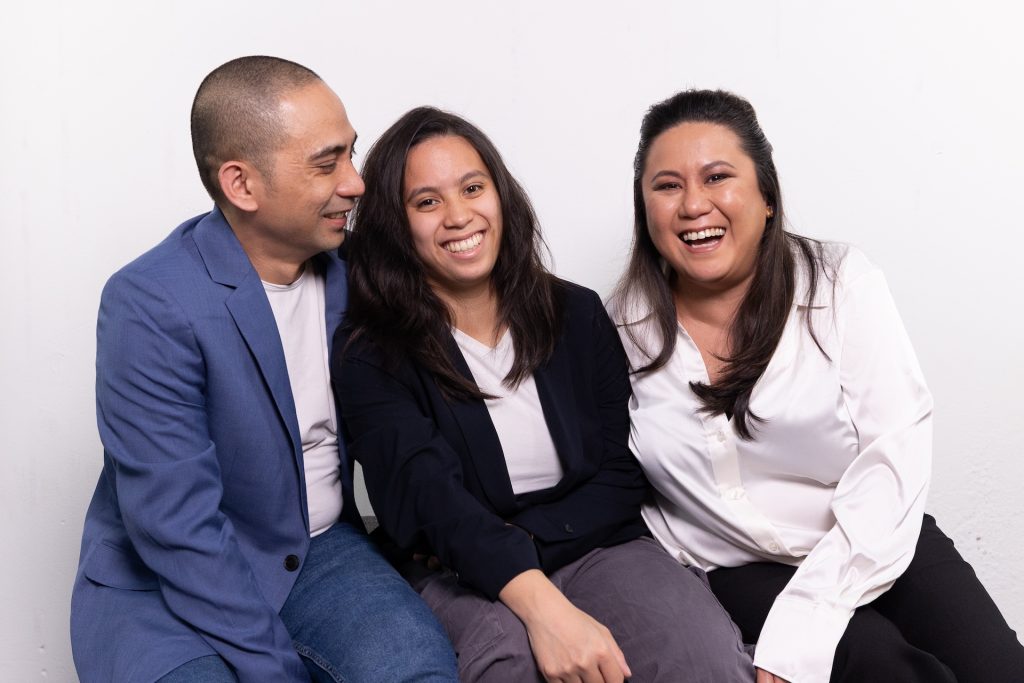

Did you have to compromise on motherly duties?
“A lot, especially when Rheaen was younger. I would be working after she had gone to bed, but then I would always be lacking sleep. Since Dennis was juggling a full time job as well as our side ventures, I did not want to push him to spend time with Rheaen when he came home. So I promised Rheaen that everyday, 5:30 – 6:00 pm would be our time together. But because of work, I would skip that bonding moment. At one point she got so mad at me for breaking my promises, and started questioning what I was working hard for anyway? It was an eye opener. There was my daughter waiting to be with me at 5:30 pm, but here I was doing something else. Do others appreciate the same 30 minutes I spend with them?. Now, we set aside Sunday exclusively as family day. It does not matter what we do, as long as the whole day is dedicated to the whole family.”
Growing Pamana World products into household names comes with big expectations. In the Filipino society where success equals tangible results like a big house, latest car, or a show of affluence, Rhea and Dennis choose to remain prudent. They still live in the couple’s first house in Hoofddorp, where their home
business started, and channeled more investments into Pamana World, like buying a food truck to sell ice cream and halo-halo dessert in festivals around Benelux. In 2023, Luneta Ice Cream won the Public Award for food trucks at the Dutch Horeca Prize.
What is your measure of success?
“If your product or brand is able to leave a mark in the history of food, you are successful. It is a good thing if your company books profit but that takes time. No business can have instant profit. But if people remember your product , you’re doing something right. Whether that’s a brand or a service that only you can provide, you can consider yourself successful as long as you can live comfortably
from it. And if you don’t sacrifice family time for your business, then you are successful. You don’t need to earn loads of money from it.
We receive a lot of unsolicited advice. But we have a clear advocacy for Filipino
food. The reason why we make a lot of products is because we want to create things, we want to create memories. Something that would outlive us. That’s the legacy (pamana in Filipino). But I don’t want to stress myself too much. I’ll stay with what I can manage because I don’t want things to fall apart. I can dominate the world, if I want to, but at what cost?”
Aside from running Pamana World, Rhea continues to provide marketing and design services and still organizes Filipino events. She also runs her social media channels under Chickatita, where she shares her travels, and interviews with
fellow Filipinos.
Her ability to navigate different roles has earned Rhea a unique status in the Filipino community in Europe – a catalyst who brings people together to make even the most difficult ideas happen, whether it is a new product, a new venture or a new event.
Walter Labajo, event director and organizer in the Netherlands has been working with Rhea for more than a decade in projects such as the Philippine Independence Day celebration. He speaks of her passion and dedication.
“Rhea is incredibly reliable, always following through on commitments and ensuring that every detail is spot on. She is deeply passionate; in every event, she puts in her entire heart and soul and this propels her to go above and beyond her responsibilities to elevate everyone’s overall experience.”
In the early years of The Filipino Expat Magazine, Rhea handled its advertising, bringing in companies from her own network that enabled TFEM to develop a stable financial footing that sustained our publishing for several years.
We have a clear advocacy for Filipino
Ube Queen Rhea Topacio, owner of Pamana World
food. The reason why we make a lot of products is because we want to create things, we want to create memories. Something that would outlive us. That’s the legacy (pamana in Filipino).”
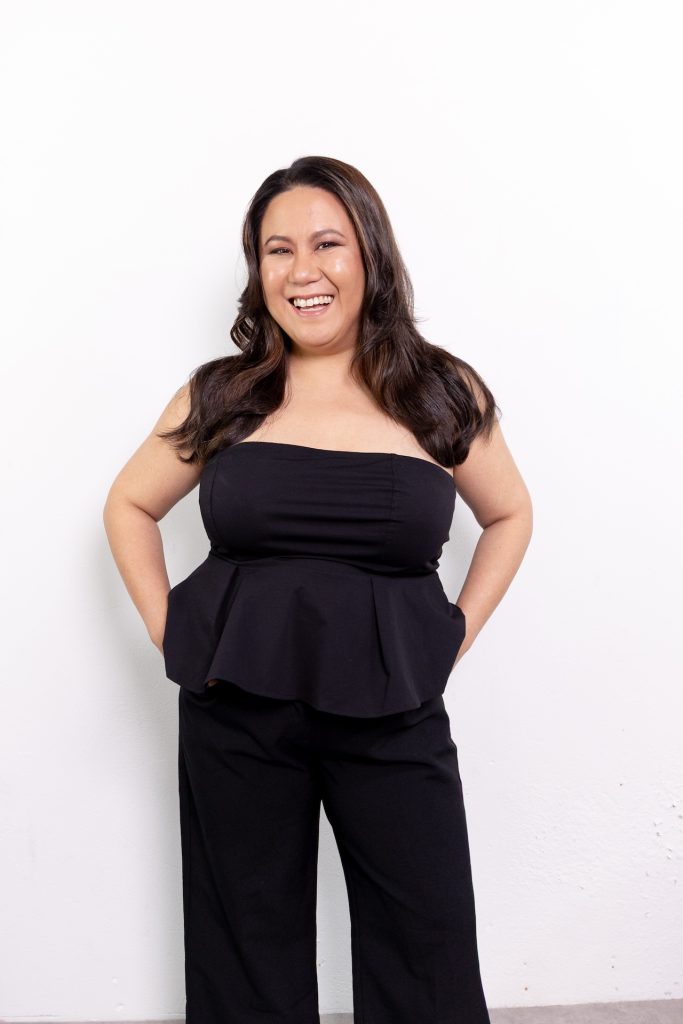
Is it not tiring to be passionate all the time?
“I am a control freak so that can get tiring. I always want to see something new, something extravagant because I know Filipinos can do it. I have so much belief in
what Filipinos can do. But because I want to do so much, the problem lies when I cannot achieve my goals. That’s what I have to deal with.”
What drives you?
I get tired of monotony so I”ll quit.
Do you often quit?
It depends. Every month I evaluate myself because I don’t want to be doing the same thing over and over again expecting a different result. Is it still worth spending time, money and energy on? There are things I tire of easily, like projects that don’t really take off. I evaluate what’s the impact on the community, what’s the impact on me, ‘can I do it?’. When I feel that something is not going my way, I take time to think about it, and I ask the opinions of my friends. But things like continuing with Pamana World during the pandemic, I will not give up on that.”
How do you handle having kababayans as your competition?
“I used to be petty. I did not want my competition to do what I was doing. But with age comes wisdom, and I realized that Europe is a large market. You don’t have to sell only to Filipinos. The Filipino community is still a minority market, so why only stay in the smaller market? If there are one million Filipinos in Europe, can I even afford to produce one million tubs of ice cream? Obviously not.
We did not have to share trade secrets but we can collaborate in small things like sharing strategies in promotions or supporting community events. So it’s better to work together to make Filipino food bigger in Europe. Also the bigger the market reach, the more people you can help.”
“What I struggled with at the beginning is the dishonesty from some of our kababayans. Sometimes a Filipinos’ frankness comes off as a personal attack rather than a constructive criticism. Our company’s culture is rooted in brutal honesty but then I would get feedback that I was too bitchy. But there is a kernel
of truth in it so I had to accept and adjust to that. Seldom that I am able to tell what I really think and not have the other person feel offended. So I prefer to deal with people who are brutally honest to keep the relationship real.”
“Buy Filipino. It does not matter where it is manufactured but it’s a way of promoting Filipino culture. We should promote our brands and support Filipino entrepreneurs because it’s sad that other nationalities are manufacturing our own food. Let’s be proud of our delicious cuisine.”
Ube Queen Rhea Topacio, owner of Pamana World
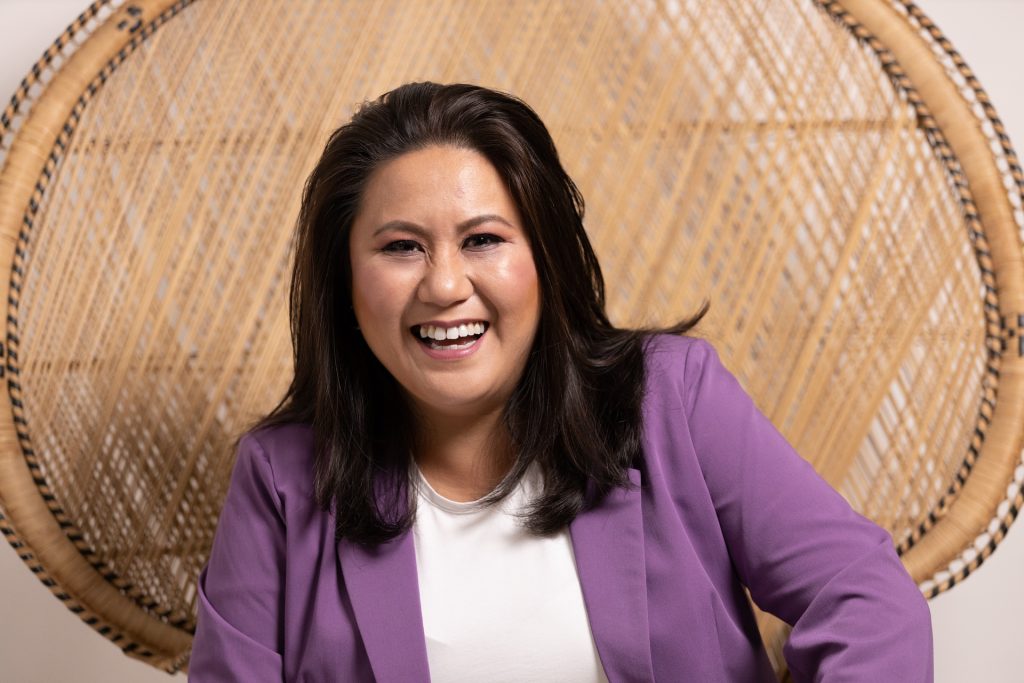
And your advice to fellow Filipino entrepreneurs?
“Let’s not fight, there’s no point in that. Other entrepreneurs from other nationalities and other cultures would join together for their businesses. Why can’t we do the same?”
Did you ever have quarrels with competitors?
“Of course. But is it necessary? Do we need to spend time bad-mouthing each other? I think we are smarter than that.”
What can Filipino expats do to support Filipino entrepreneurs abroad?
“Buy Filipino. It does not matter where it is manufactured but it’s a way of promoting Filipino culture. We should promote our brands and support Filipino entrepreneurs because it’s sad that other nationalities are manufacturing our own food. Let’s be proud of our delicious cuisine.”
Rhea hopes to see not just more Filipino food brands in Europe in the coming years but that Filipinos will also start producing Pinoy foods locally so that Europeans will also learn about our cuisine.
“Our focus right now is to strengthen and help Filipino entrepreneurship. When I develop a product and sell to distributors and retailers, they can earn from it. So we would rather stay in the Asian and Filipino market for now.”
Despite Filipino cuisine gaining interest in recent years, she does not see it taking off quickly like with other Asian cuisines. She encourages kababayans who want to venture into the food business to research well so that they can take calculated risks.
In the meantime, she plans to release more products in the coming months and set her goals to wider distributions including the Middle East and US.

